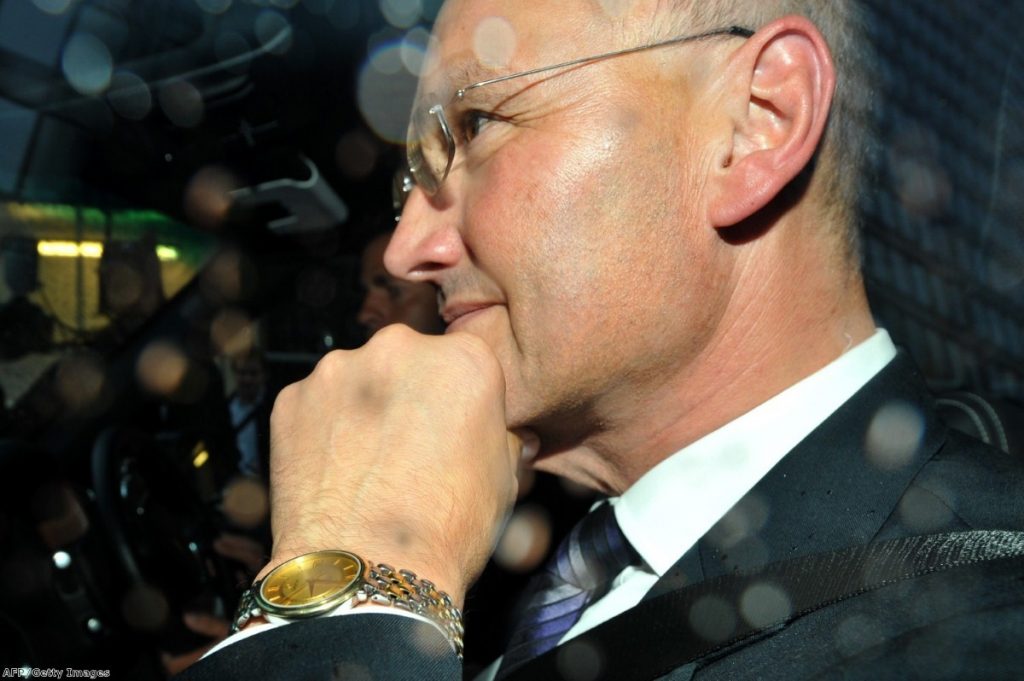Phone-hacking: Police watchdog won’t probe senior ex-Met officers
By Alex Stevenson Follow @alex__stevenson
Former Metropolitan police commissioner Sir Paul Stephenson will not be investigated over his decisions in the phone-hacking case, the police watchdog has announced.
The Independent Police Complaints Commission (IPCC) said the conduct of Sir Paul, former assistant commissioners John Yates and Andy Hayman and former deputy assistant commissioner Peter Clarke did not warrant examining further "in relation to their alleged respective roles in the 'phone hacking' investigation".
But Mr Yates will face a new probe over his alleged involvement in the securing of employment for the daughter of ex-News of the World journalist Neil Wallis.
"I strongly deny any wrongdoing and I am completely confident that I will be exonerated," Mr Yates said in a statement.
"I have been entirely open about this matter and I will cooperate fully with the investigation which I hope will be conducted swiftly."
IPCC deputy chair Deborah Glass said her watchdog had to decide what was and what was not conduct which needed investigating.
"A clear line must be drawn between what is a recordable conduct matter – in effect, conduct that is either criminal or for which an officer should be disciplined – and public concerns that will be addressed and scrutinised by Lord Justice Leveson's public inquiry," she said.
The IPCC had to make the decision after the four senior ex-officers were referred to them by the Metropolitan Police Authority.
Ms Glass said Sir Paul, who resigned as Met commissioner at the height of the phone-hacking scandal last month, could not be said to have committed a misconduct offence because one of his officers "may have carried out a poor investigation".
There was no need to investigate his decision to accept five weeks of free treatment at Champneys health spa because he had already resigned from his job, she explained.
Ms Glass added: "The public will make its own judgements about whether any senior public official should accept hospitality to this extent from anyone – or indeed about a policy which regards hospitality as acceptable merely because it is disclosed."
Sir Paul responded to the IPCC's decision by saying it was "as I would have expected it to be".
He refused to accept criticism of his Champneys decision, however, saying: The IPCC's comments about my acceptance of assistance from a friend through my family, unconnected to my professional life, of services from Champneys' Medical Services, which they chose to examine under their powers without any external referral, does in my view fall a little short of full and proper context.
"However, this is a matter for their judgement."
Ms Glass' comments about the other officers' involvement were critical, despite the decision not to launch a full investigation into potential misconduct.
Mr Yates, who decided not to reopen the original phone-hacking investigation in 2006, escaped further scrutiny because "it is difficult to see what further investigation would achieve".
Mr Hayman, who supervised the 2006 investigation at the same time as maintaining social contacts with News International staff, will not have his conduct probed "in the absence of any actual evidence of impropriety".
The IPCC appeared to suggest Mr Clarke, who was responsible for the 2006 investigation, would have been more vulnerable had the referral been phrased differently.
"Had a complaint been made about the original investigation, fairness would require any investigation to consider whether his decision to set narrow parameters was reasonable and proportionate in all the circumstances as they existed at the time, which included some 70 live operations relating to terrorist plots," Ms Glass noted.
There are now three investigations being conducted by the IPCC in relation to phone-hacking: the supervised investigation into alleged police corruption linked to Operation Weeting and two independent probes: the Met's director of public affairs Dick Fedorcio's decision to hire Mr Wallis' firm Chamy Media, and the probe announced today looking at Mr Yates.





-01.png)